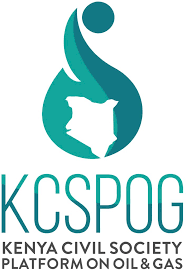Potential Government Revenues from Turkana Oil
The ‘Potential Government Revenues from Turkana Oil’ Report analyses potential revenues from the Lokichar project
This report seeks to provide an estimate of the scale and timing of possible Kenya national government and Turkana county government revenues from Turkana oil. The series of successful oil exploration wells in the South Lokichar basin has generated high expectations for the country as a whole and for the historically marginalized Turkana region in particular. Provisions in the 2015 draft Petroleum Bill for transfers of government oil revenue to Counties (20%) and Communities (5%) have also generated additional interest.
The report heralds key findings on future revenues as below:
1. Under the “best case” assumption of production beginning in 2021, oil production reaches its peak in the years 2025-2030 before beginning a rapid decline. Revenues to the government peak in the late 2020s at USD 650 million per year with oil prices at $45/bbl, at USD 1.7 billion at $65/bbl and at USD 2.7 billion at $85/bbl
2. The overwhelming source of Government revenue is their share of profit oil. Profit oil generates 80-90% of government revenue at varying price levels. The windfall tax generates significant additional revenue over the lifespan of the project but is of course very price sensitive. At $85/bbl the windfall tax generates a total of more than USD 1 billion accounting for just under 15% of government revenue.
3. Our analysis suggests a total undiscounted government take of around 70%, with 60% coming from production sharing and the windfall tax, and an additional 10% coming from state participation. The PSC terms used in this analysis therefore compare reasonably well with international averages, taking into account that Kenya was not an existing oil producer when the contracts were signed.
The report calls for release of all oil contracts as well as feasibility studies to enable further analysis on other basins in Kenya. It stresses the need to manage expectations of all stakeholders on future revenues to more realistic levels. It also points to a short period within which Kenya can maximize benefits from the sector.
More Information
The paper is a collaborative piece between the Kenya Civil Society Platform on Oil and Gas, Resources for Development Consulting, Timu-Community Development Associates, and generously funded by Cordaid.
We launch this report as a discussion paper and therefore welcome your feedback on the analysis put forward. For any comments and suggestions, please contact:
Media Contacts:
Kenya Civil Society Platform on Oil and Gas
Charles Wanguhu, Coordinator: wanguhu@kcspog.org Tel. 0716159499
Cordaid / Timu-Community Development Associates Jeroen de Zeeuw: jeroendezeeuw@gmail.com Winstone Omondi: joel.omondi@gmail.com
